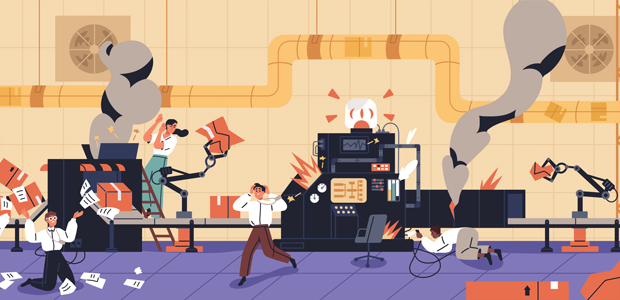
Why Startups Fail and How to Avoid the Same Fate
The success of high-profile startups such as Airbnb and Mailchimp might make the idea of getting into the startup world a very attractive one.
However, it is important to know that the failure rate of startups is distressingly high. It is reported that around 66% of startups fail to make a profit and fail within their first year, according to Harvard Business Review.
If you want to get your business off the ground, and keep it afloat, it is important to know the reasons that so many startups fail.
Money Runs Out
This is clearly the most important reason that most fledgling startups fail. The money runs out. There are a myriad of reasons why a startup may run out of funds.
One reason may be simply an inability to find sustainable sources of funding, particularly in the early days.
Another may be poor financial planning. Creating a clear, and detailed financial plan is key to the success of any startup, yet it is too often forgotten about in the excitement of getting a project off the ground. Understanding the financial side of any new project is absolutely key to success. Getting it wrong could prove fatal to your business.
Poor Marketing
It can be unwise to invest too much in marketing before you have both perfected your product and subjected it to product validation. However getting to grips with the market is key to getting a better understanding of the viability and potential profitability of your product. It is an aspect of business that many startups do not take the time to invest in.
Take time to understand how your product may fit in the contemporary marketplace. Understand key demographics. And, most of all, reflect on whether what you are developing will actually fit the contemporary market. Many startups have failed because of this lack of consideration.
Being Outcompeted
Too many startups begin without a clear understanding of their competition.It is a crowded marketplace. Especially in the areas that many startups are focused on, such as FinTech (finance technology).
A lack of understanding of the competition can lead to your startup being drowned out by other competitors offering similar products. This can be avoided by clearly understanding, and focusing on, the USP (unique selling point) of your product.
Understand how your product differentiates itself from competitors in the same industry and market your product accordingly.
Poor Business Plan
The lack of a clear, detailed business plan is often the reason that startups fail to get off the ground, even if the product they are selling has the potential to be majorly profitable.
Creating a rigorous, yet flexible business plan is vital to the success of any business. Your business plan must be adaptable to market changes as well as take into account the way that your business will scale over the years.
A lack of business knowledge within a startup team is the reason that many startups go under. It is therefore essential that your team is equipped with enough knowledge of contemporary business models and practices to create a viable business plan.
Lack of Expertise
A common reason for the failure of many startups is simply a lack of business expertise. It is tempting for budding entrepreneurs to believe that they have a brilliant product and that everything else will take care of itself. This can be a ruinous error in judgment when it comes to getting a startup off the ground.
A good startup team must be equipped with enough knowledge of business practices to really understand the marketplace that they are entering into.
Understanding all aspects of running a business is key to the success of any start up. A lack of knowledge can be allayed through rigorous research and planning, as well as smart hiring practices that focus on any knowledge gaps that must be filled.

